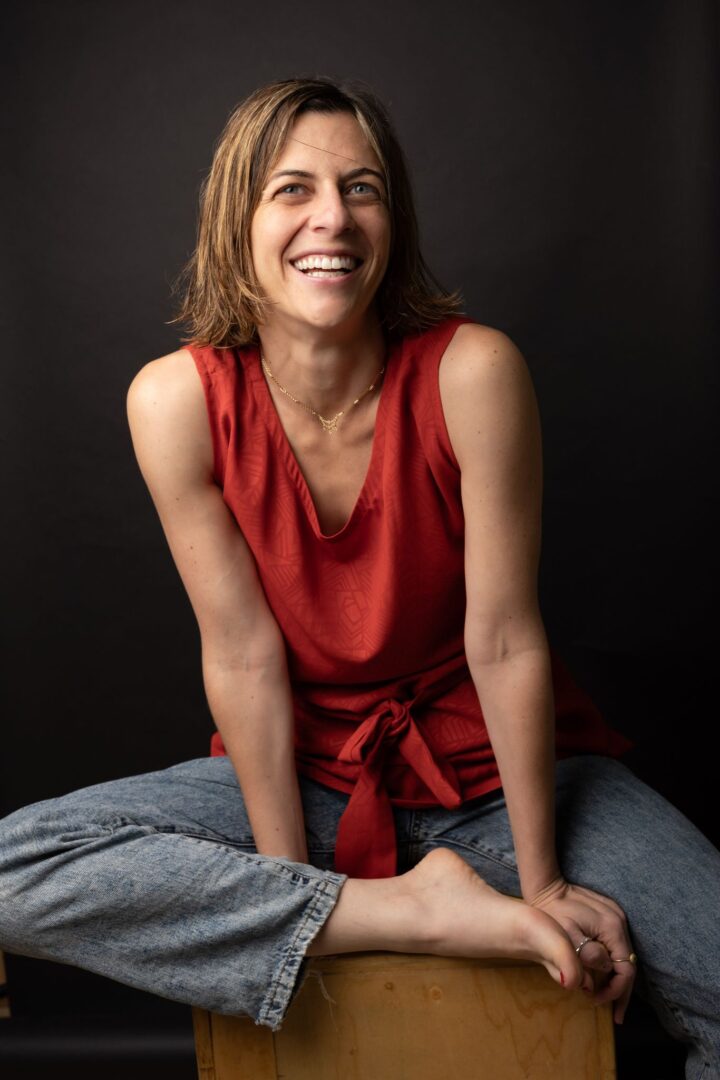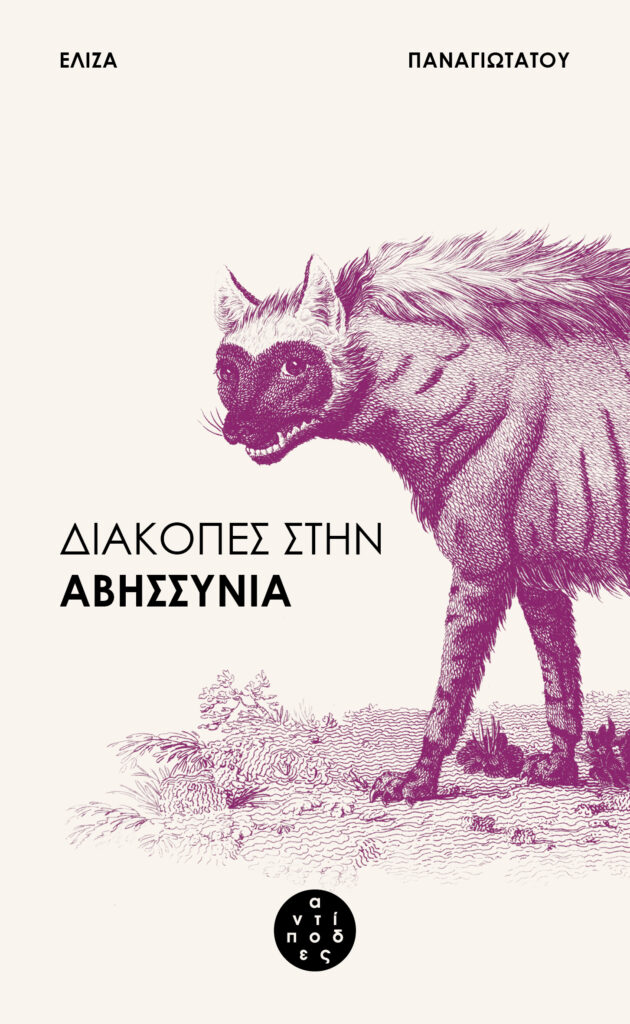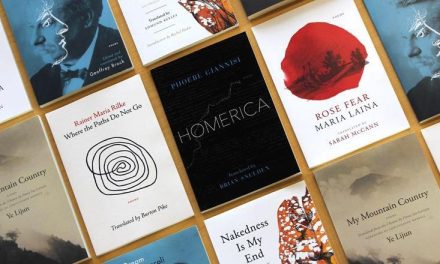Eliza Panagiotatou (1984) was born in Athens and lives in Nairobi. Her latest book Διακοπές στην Αβησσυνία [Holidays in Abyssinia] was published in October 2023 by Antipodes. Her books include: Αυτά έγιναν χτες [Those happened yesterday] (Koukoutsi, 2015), (Δε) μιλάς [Υοu (don’t) talk] (together with Linda Akende) (Ouapiti, 2016), Τεχνικές Κολύμβησης [Swimming techniques] (Antipodes, 2017), Πρίνσες [Princess] (Ouapiti, 2019), Αεροδρόμιο [Airport] (Αntipodes, 2021).

Your latest writing venture Holidays in Abyssinia was recently published by Antipodes. Tell us a few things about the book.
In Holidays in Abyssinia, Tessy, a 35-year-old woman, will depart from Athens to make a trip to Ethiopia. The occasion is the death of her father and her contact, through him, with a part of her family history which she was unaware of. The book is divided into three parts: home, the journey and the return. The heroine will part with the intimacy, crisis and loss of Athens and will find herself in Dire Dawa with its red flowers, hyenas and her grandmother’s past. At the center of the book is this movement, which has no clear goal, as well as the secrets that are passed from one generation to the next. Through love stories and while searching for her grandmother’s gold pounds, Tessi will experience major changes, small victories and meet unexpected matriarchies.
In the words of Maria Louka, the book talks about the wounds and stubbornness of a generation interweaving the existential with the political. Where does the personal meet the collective in your work?
At the heart of the book are the personal experiences of the heroine, which are strongly influenced by the collective experiences of her time. Tessy is part of a generation that experienced a financial crisis, frustration, precariousness and collective trauma and, as a result, constructed a collective identity that differs from that of the previous generation. She is also a woman and therefore belongs to a group that moves and lives within a patriarchal and oppressive environment. I believe that every personal experience is in dialogue with the collective and this applies both to me as a person and a writer and to the heroines and heroes of my books.
More generally, how does literature converse with the world it inhabits? Could it be used to imagine what could be radically different realities?
Drawing from the materials of the real, literature constructs imaginary worlds, which could constitute alternative ways of life. However, these worlds may not be presented as realistic alternatives, but simply exist and invite the reader to participate in a utopia through reading and aesthetic enjoyment, through language and the way the story has been built. In other words, reading a good book makes a person part of another world, whatever the story behind it.
Travelling, utopias, literary non(topoi) seem to be among the themes your books delve into. Are there recurrent points of reference in your literary work? What role does language play in your writings?
Travels, various kinds of utopias as well as (non)places interest me as literary material, because they offer me plasticity and space to tell stories beyond the realm of the known and the everyday. At the same time, I am interested in the way in which personal identities interact with these new environments. In other words, I am interested in what happens when people leave their familiar environment, where they have learned to move and in which they feel safe. I consider this issue a challenge both in literature and in my personal life. In literature, for me, language is the starting point. The theme may be central but in order for it to become a book I have to find a voice, an approach as well as the style, the language, that will guide me.

“The challenge is to re-appropriate ‘women’s writing’ on our own terms”. Τell us more.
For years the term women’s literature was derogatory. We grew up reading a literary canon that excluded women writers, and the few who did manage to fit into it were evaluated on the basis of their gender. For women they were good, but not as good as men. I do not believe that these stereotypes have been οvercome. Books written by women are still approached differently. Gender plays a decisive role in how a book is valued, regardless of its content. This whole approach is part of the male gaze on everything women do.
Ideally, I would like to proudly re-appropriate the term women’s literature. I believe that the female experience differs from the male one in all areas of life, thus in art as well. In no way do I consider that this implies a difference in quality. It is another category, such as origin, skin color, social class. And as such it is there.
Which are the main challenges new writers face nowadays in order to have their work published? What role do the social media play in the promotion of new literary voices?
Having your work published is not an easy task. Most publishing houses in Greece ask for money; the market is small. In addition, almost everyone who writes is obliged to do another job to finance both their life and their writing. Thus, large social groups are excluded from the process.
I’m not sure exactly how the social media work in promoting new voices. They are certainly there and they may act as a channel but I don’t think that it’s easy to promote new voices through them, nor do I consider that they should be part of the job of the writers.
How do young writers converse with global literary trends? Where does the local/national meets the global and the universal?
I reckon that nowadays younger people who write in Greek read a lot in other languages as well and consequently they come into contact with texts other than those translated into Greek. In this way, the limited access to which the Greek language forces us as well as the choices of the publishing houses as to what is worth translating, what the market will read, is bypassed. I consider this contact to be both fruitful and necessary, an opening to other countries, languages and continents, without which I wouldn’t be who I am today as a writer.
*Interview by Athina Rossoglou
TAGS: LITERATURE & BOOKS | READING GREECE













